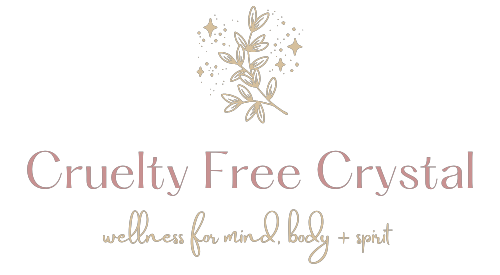7 Foods That Are Good For Your Digestion And Your Taste Buds
This past summer, for some reason, I was getting reoccurring strep throat. I had it 3 times back to back. Before resorting to the extreme of a tonsillectomy, the doctor kept trying different antibiotics. The strep throat would get better for about a week and then return with a vengeance. I was miserable. After the third time, the doctor recommended a tonsillectomy because he didn’t want me to be on antibiotics any longer. I ended up getting a tonsillectomy to avoid taking anymore antibiotics. They made me feel horrible, and my digestion was very off.
I knew I had to get my gut health back on track. While it’s good to take prebiotics and probiotics in pill form, I knew it would be even better to eat foods with the actual “good stuff” in it. So, I researched what were some probiotic-packed vegan foods & here we go!
As WebMD says, “Probiotics [microflora] are live bacteria and yeasts that are good for you, especially your digestive system. We usually think of these as germs that cause diseases. But your body is full of bacteria, both good and bad. Probiotics are often called “good” or “helpful” bacteria because they help keep your gut healthy. They can help balance your “good” and “bad” bacteria to keep your body working the way it should.”
Prebiotics are basically microflora’s food that allows them to flourish in our guts! These are typically high-fiber food such as whole grains, bananas, greens, and soy.

1.Tempeh
As mentioned above, soy is a very good source of prebiotics, as it nourishes the good bacteria in our system. Soybeans contain more oligosaccharides than any other food, which are a prebiotic that promotes the growth of the healthy microflora, Bifidobacteria, in the colon. Not only is tempeh made from soybeans, but it is also fermented, meaning that it also contains probiotics. Tempeh is one of the best foods for your gut health. Not to mention, it’s high in protein and delicious!

2. Dairy-free Yogurt
While non-vegans like to think of dairy yogurt as a good source of probiotics, remember the damaging effects of dairy on our bones, our cholesterol, and our hormones. Just because something has one pro, doesn’t mean we should ignore all of its cons. Dairy-free is a much healthier option to get probiotics if you like yogurt. Vegan yogurts are usually fortified with probiotics. This is a yummy way to feed your gut!

3. Garlic
According to a study by the Department of Food Science and Engineering at Jinan University in China, about 6% of garlic’s fiber occurs from
fructooligosaccharides, a naturally occurring prebiotic. This prebiotic supports the growth of Bifidobacteria, a helpful probiotic for the gut that inhibits disease-promoting bacteria from growing. Eat the garlic raw to better uphold the fiber. Raw garlic can be used in hummus, pastas, and guacamole. Just make sure to have a mint on hand – haha!

4. Miso
Miso is made from fermenting soybeans and turning them into a thick paste used for flavoring and seasoning. I’m sure we have all had miso soup before – yum! But like tempeh, since miso is made from soybeans and is fermented, it is a good source of prebiotics and probiotics. Aspergillus oryzae fungus is the main probiotic in miso, which is shown to reduce symptoms of digestive issues. You can have some miso soup, or if you’re in for a double whammy, use it in a marinade for your tempeh! That is my favorite combination.

5. Sourdough
Although this is typically referred to as a “white bread,” it has more protein and less sugar than regular white bread. It usually doesn’t contain any oil either which is a major plus. The other good thing about it is that it’s ALWAYS vegan, so you don’t have to worry. Also, sourdough does not require any extra preservatives since it is made with live yeast cultures that extend its shelf life. This “wonder bread” (get it?!) uses Lactobacillus cultures, a probiotic, in the fermentation process. So next time you grab a sandwich, use some sourdough for all-around good benefits.

6. Dark Chocolate
Chocolate is good for us?! Actually, yes. Aside from all the other health benefits of dark chocolate, it is also beneficial for your gut. Dark chocolate is a prebiotic that contains undigested fiber that feeds and grows our healthy probiotics in our large intestine. According to Hyperbiotics, two studies from The American Journal of Clinical Nutrition and The National Meeting & Exposition of the American Chemical Society explained the benefits of dark chocolate:
“In one study, 22 volunteers who consumed a high-flavanol cocoa for four weeks experienced significant increases in their gut populations of probiotic superheroes, Bifidobacteria and Lactobacilli.”
“Beneficial bacteria can ferment dark chocolate fiber into short-chain fatty acids like butyrate and acetic acid that fend off harmful microbes and reinforce the gut barrier against antigens and invaders.”

7. Apple Cider Vinegar
Although ACV isn’t exactly considered a “probiotic” or”prebiotic,” it is extremely beneficial to our gut health. ACV can significantly reduce the overgrowth of candida in our system. Candida is a group of yeasts (the “bad guys”) that can cause havoc on our body when it grows out of control. This can cause vaginal yeast infections, oral thrush, bloating, constipation, diarrhea, leaky gut, autoimmune diseases, and much more. One of the biggest complaints I hear from people with a candida overgrowth is how their stomach hurts. This can be because of the bloating or constipation. ACV is a natural anti-fungal agent, and it is proven to reduce the growth of candida in our guts. You can drink ACV straight in 1 T servings (I don’t recommend doing this on an empty stomach), dilute it in water and drink it, use it in a salad dressing, or even add it to smoothies or baked goods.





No Comments